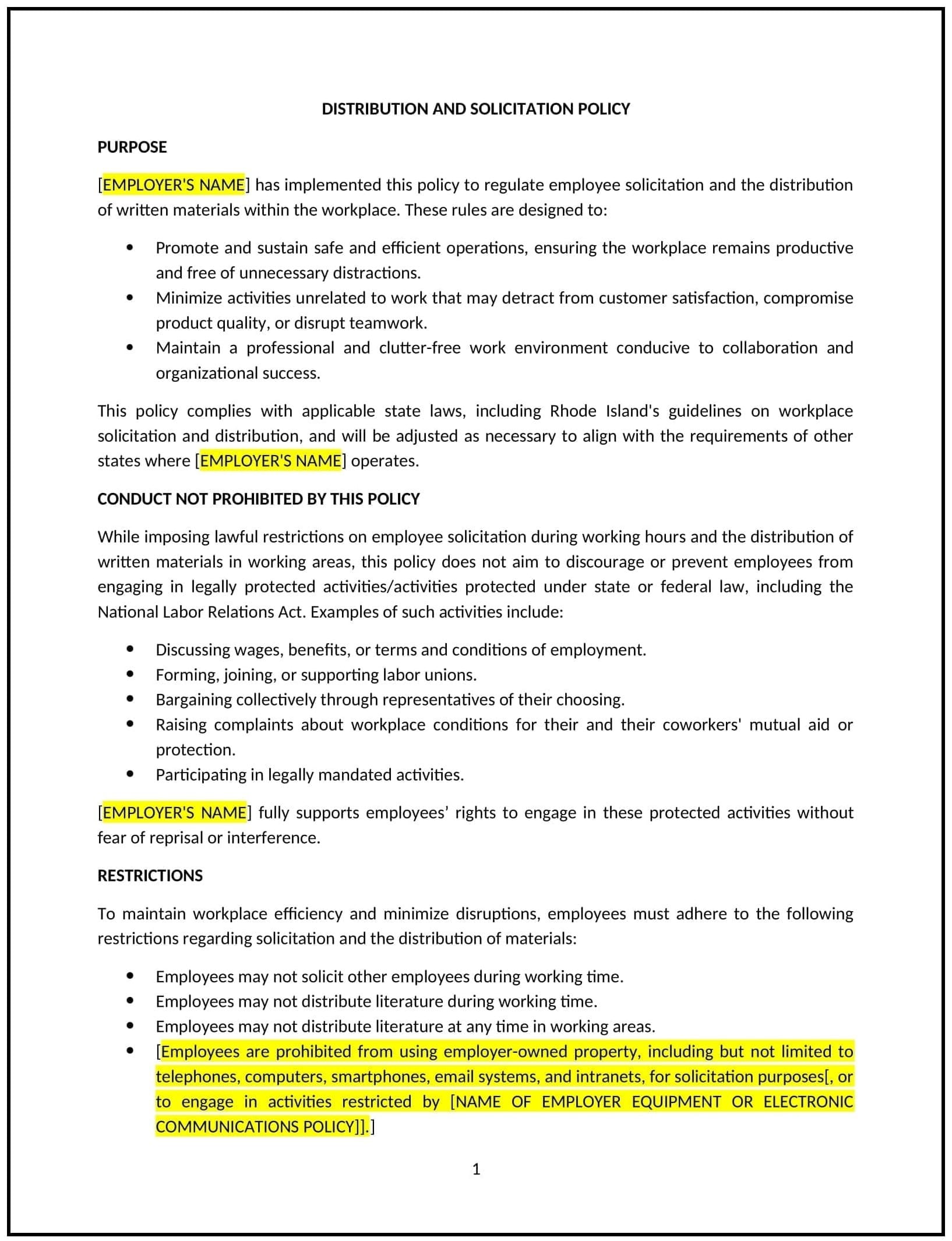Distribution and solicitation policy (Rhode Island): Free template
Got contracts to review? While you're here for policies, let Cobrief make contract review effortless—start your free review now.

Customize this template for free
Distribution and solicitation policy (Rhode Island)
This distribution and solicitation policy is designed to help Rhode Island businesses regulate the distribution of materials and solicitation activities in the workplace. It outlines guidelines for employees and third parties.
By adopting this policy, businesses can maintain professionalism, reduce distractions, and protect company interests.
How to use this distribution and solicitation policy (Rhode Island)
- Define prohibited activities: Specify what types of distribution or solicitation are not allowed.
- Set approval procedures: Outline steps for requesting permission to distribute materials or solicit.
- Address third-party activities: Clarify rules for vendors, contractors, or other external parties.
- Train employees: Educate staff on the policy and its importance.
- Review and update: Assess the policy annually to ensure it aligns with evolving business needs.
Benefits of using this distribution and solicitation policy (Rhode Island)
This policy offers several advantages for Rhode Island businesses:
- Maintains professionalism: Ensures the workplace remains focused and professional.
- Reduces distractions: Limits non-work-related activities that can disrupt productivity.
- Protects company interests: Prevents unauthorized distribution of materials or solicitation.
- Builds trust: Demonstrates to employees and third parties that the business values a professional environment.
- Aligns with best practices: Supports adherence to workplace standards.
Tips for using this distribution and solicitation policy (Rhode Island)
- Communicate the policy: Share the policy with employees and include it in the employee handbook.
- Provide training: Educate managers on enforcing the policy and addressing violations.
- Monitor compliance: Regularly review distribution and solicitation activities to ensure adherence to the policy.
- Address issues promptly: Take corrective action if violations occur.
- Update regularly: Assess the policy annually to ensure it aligns with evolving business needs.